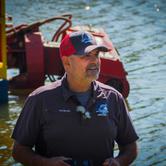Pond Algae – The Good, Bad, and Ugly
"Algae" is often a catch-all term for many nuisance aquatic plants. However, that's doing this diverse species a considerable disservice. While there are many nuisance species of algae, there are also some good ones from which aquatic life in your pond cannot exist without them. Algae play a vital role in the health and longevity of any natural or man-made body of water—whether it's an HOA, golf course, or backyard pond. We will look at what algae is, its role, and the pros and cons it brings to any pond it inhabits.
What is Algae?
Contrary to what many people think, algae are not classified as plants---instead, they're a very diverse group of aquatic organisms. They can perform photosynthesis, that is, turning sunlight into the oxygen that they need to survive. Pond scum, algal blooms, and even seaweed are all different variations of algae. They live in the water column of every single pond and provide food for larger organisms.
Algae Benefits
Algae are at the bottom of the food chain when it comes to aquatic life. Sportfish such as crappie, bass, and trout often feed upon smaller prey fish, such as minnows. Those minnows tend to eat zooplankton, which in turn consumes the microscopic planktonic algae. Without this vital food source, the bigger game fish won't have much to eat and, as a result, won't grow as large.
Algae Problems
People's biggest complaints about algae are aesthetics—and sometimes the offensive smells that a massive bloom gives off. A golf course or homeowner's association pond covered in thick green muck or slime is unattractive and can reduce property values and quality of life. These algal blooms range from utterly harmless to extremely toxic. The so-called "blue-green algae" is a bacterium producing dangerous cyanotoxins. If ingested by pets or human beings, it can cause potentially fatal results. You could get sick from such a small exposure if you get a few drops on your skin.
Why Do Algal Blooms Occur?
A "bloom" is the very rapid increase of the amount of a specific type of algae organisms in a body of water. Water, sunlight, and nutrition conditions are suitable for a population explosion. Some algal blooms are completely harmless and only serve as an aesthetic nuisance, while others, such as blue-green algae, pose life-threatening risks to both animals and humans that come in contact with it.
How to Prevent a Bloom?
Managers of ponds, such as HOAs and golf courses, can do a few things to help mitigate a nuisance bloom. For instance, the rich organic muck at the bottom of any pond serves as a seven-course buffet meal for many nuisance algae species. All that it takes is one warm sunny day, and the pond will be covered in an unsightly and often smelly nuisance mat of algae. While chemical solutions are available to combat outbreaks, the vast majority of them do little to nothing to remove the root cause: the rich organic muck at the bottom. This is why it's advised to have a professional dredger come in once or twice a year to physically remove the debris at the bottom. The dredger utilizes an oversized vacuum pump that operates from a floating barge. As an added benefit, the organic muck removed can be reused as a nutritious fertilizer for plants and grass.
What Happens When a Bloom Dies?
Algae blooms are a self-sustaining problem. When billions of the little critters die off, they sink to the bottom of your pond and add a massive amount of dead organic material to the pile. There are no beneficial bacteria to eat away the problem at these oxygen-deprived depths, so each new algae bloom tends to be much more severe than the one prior. Over time, the dead algae's decomposition process will use up an extreme amount of oxygen in the water. Noxious gases such as sulfur and methane will also be released into the air, causing people in the local area to hold their noses and complain.
Dredging Your Ponds
The best way to prevent a nuisance algae outbreak is to dredge your ponds once or twice a year. Getting rid of the organic debris at the bottom will dramatically improve the health of the pond—including the beneficial bacteria. If you're tired of fighting algae outbreaks or require a dredger, call (817) 377-8512 or contact us through our website. American Underwater Services specializes in helping HOAs, golf courses, and residential homeowners remove the organic muck from the bottom of their ponds. [author_box]



